Posted on 9/4/2024
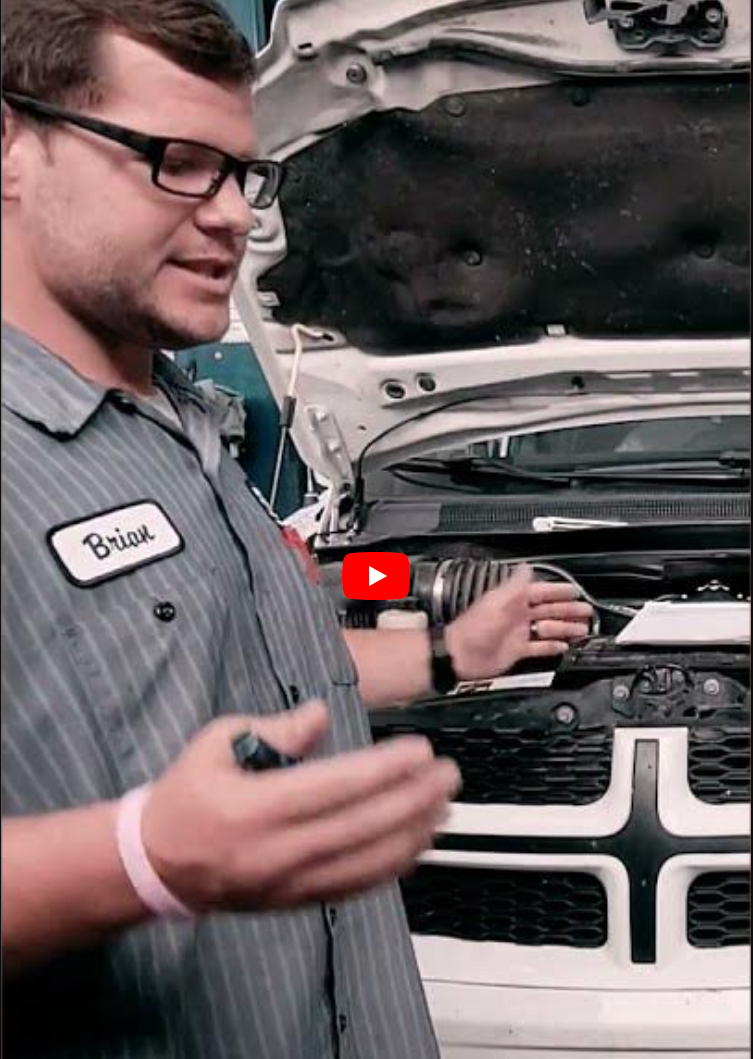
There are several common reasons why your car might be leaking oil: Gasket or Seal Failure: Gaskets or seals in your engine, such as the valve cover gasket or oil pan gasket, can deteriorate over time and start leaking. Oil Filter Issues: If the oil filter is not properly installed or if it's damaged, it can cause oil to leak. Oil Pan Damage: The oil pan can become damaged from road debris or impact, leading to leaks. Cracked Engine Block: Although less common, a crack in the engine block can lead to significant oil leaks. Loose or Damaged Oil Drain Plug: The oil drain plug, located at the bottom of the oil pan, can become loose or damaged, causing oil to leak
Posted on 8/22/2024
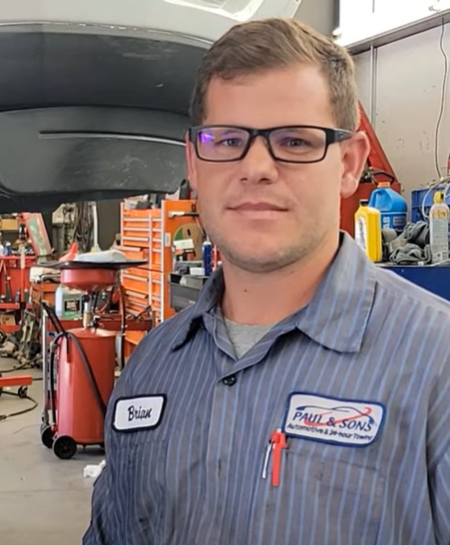
When you decline a vehicle repair, it often means that an underlying issue remains unresolved. Over time, this issue can worsen and lead to additional problems. Here’s why this happens: Progressive Damage: Some vehicle issues, like a failing transmission or worn-out brakes, can deteriorate over time if not addressed. This can lead to more severe damage and costly repairs. Compounding Problems: Unresolved issues can affect other parts of your vehicle. For instance, a small oil leak can lead to engine damage if not fixed. Increased Wear and Tear: Neglecting necessary repairs can lead to increased strain on other components, causing them to wear out faster. Safety Risks: Certain issues, such as brake or steering problems, can become more dangerous if left unaddressed, potentially compromising your safety. Addressing repairs promptly helps prevent these cascading effects and ensures your vehicle remains reliable ... read more
Posted on 8/22/2024
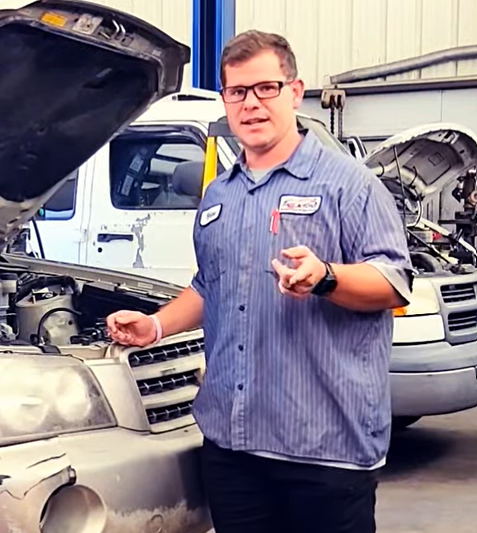
Servicing your vehicle on time is crucial for several reasons: Safety: Regular maintenance helps ensure that all safety systems, such as brakes, tires, and lights, are functioning correctly, reducing the risk of accidents. Performance: Timely servicing keeps your vehicle running smoothly, enhancing overall performance and fuel efficiency. Longevity: Routine maintenance can prevent major issues and extend the lifespan of your vehicle by addressing wear and tear before it leads to significant damage. Cost Savings: Preventative maintenance is often less expensive than major repairs that result from neglected issues. Resale Value: A well-maintained vehicle typically has a higher resale value, as it demonstrates that it has been cared for properly
Posted on 8/14/2024
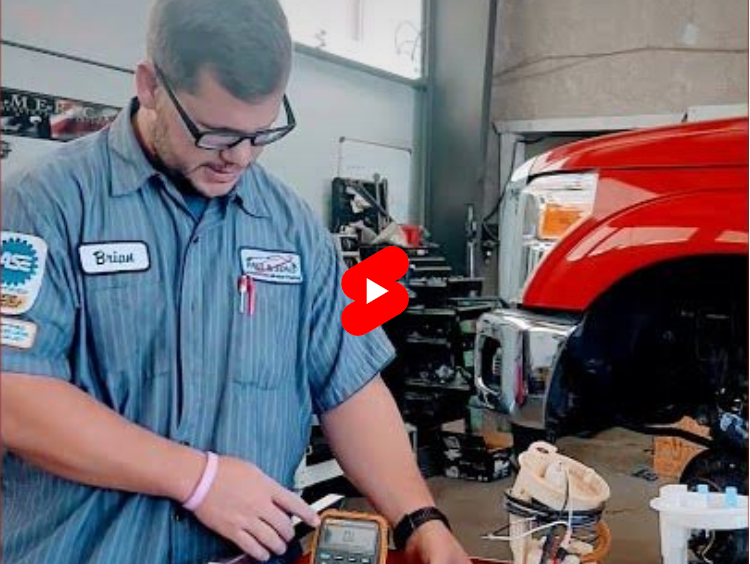
Faulty Fuel Sender Unit: This unit, located in the fuel tank, sends the fuel level information to the gauge. If it fails, the gauge may read incorrectly or not at all. Bad Fuel Gauge: The gauge itself might be malfunctioning or have an electrical issue. Wiring Issues: Damaged or loose wires between the fuel sender and the gauge can cause problems. Blown Fuse: A fuse related to the fuel gauge system might be blown. Grounding Issues: Poor grounding can disrupt the signal and affect gauge readings
Posted on 8/9/2024
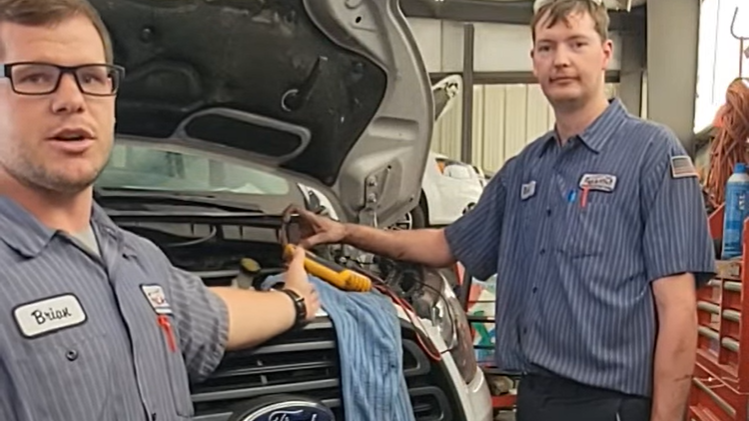
Glow plugs are components used in diesel engines to aid in starting the engine. They heat up the air in the combustion chamber, making it easier for the engine to ignite the diesel fuel, especially in cold weather. When a diesel engine starts, the glow plugs heat up to a high temperature, creating a hot spot that assists in the combustion process. Once the engine is running and reaches operating temperature, the glow plugs are no longer needed and typically turn off. They are crucial for ensuring smooth starts and efficient operation in cold conditions
Posted on 8/7/2024
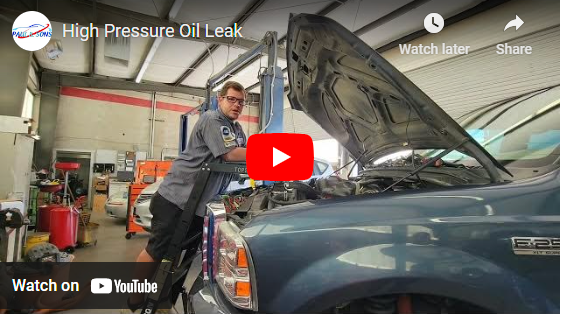
High-pressure oil leaks in trucks can be problematic for several reasons. These leaks typically occur in the hydraulic systems, including those in power steering, brakes, or engine components. Here’s a breakdown of what you need to know: 1. Causes: Worn or Damaged Hoses: High-pressure hoses can wear out or become damaged over time, leading to leaks. Faulty Fittings: Connections and fittings in the hydraulic system might become loose or corroded. Component Failures: Components like pumps, valves, or seals can fail, causing oil to leak. 2. Symptoms: Oil Spots: Look for oil spots or puddles under the truck. Reduced Performance: You may notice reduced performance in the affected system, such as less effective steering or braking. Warning Lights: Some trucks have warning lights for low oil pressure or hydraulic system issues ... read more
Posted on 8/5/2024
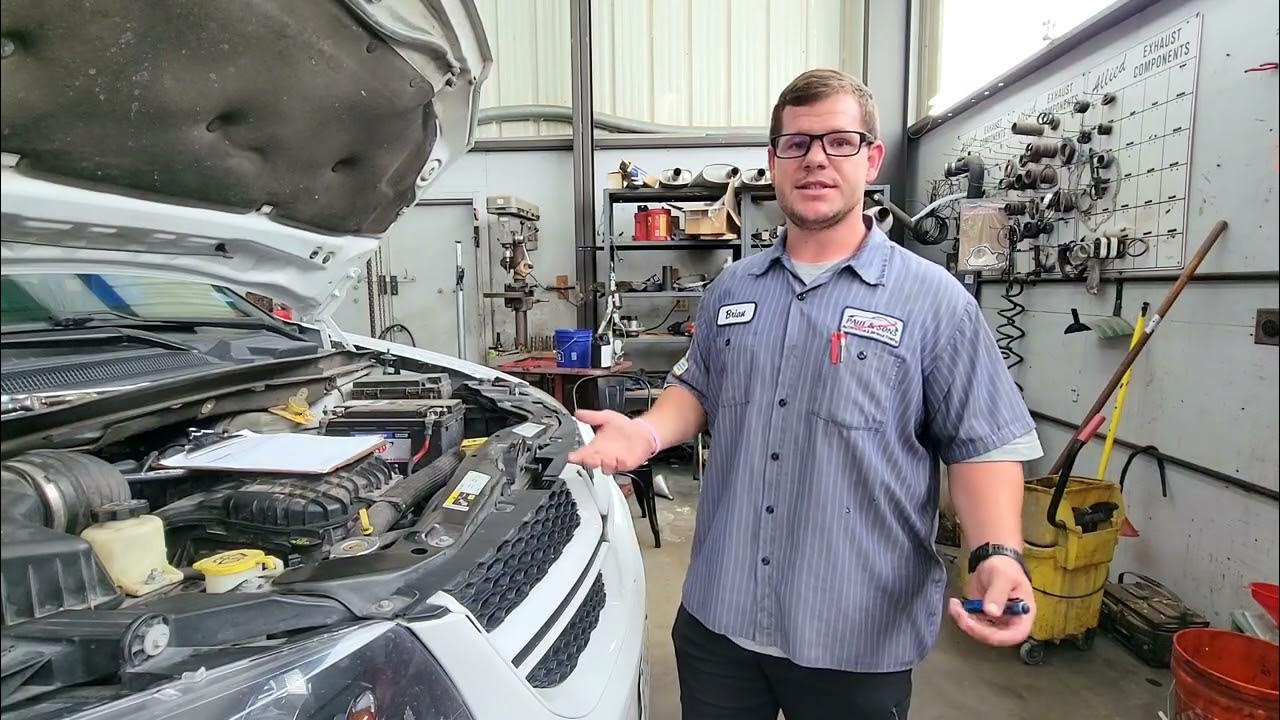
There are several potential reasons your car might be overheating: Coolant Issues Low coolant levels or a leak in the coolant system can cause overheating. Check the coolant level and look for any leaks. Thermostat Problems A faulty thermostat might not open properly, preventing coolant from circulating through the engine. Radiator Issues A blocked or damaged radiator can restrict the flow of coolant, leading to overheating. Water Pump Failure The water pump circulates coolant through the engine. If it fails, coolant circulation stops, causing the engine to overheat. Radiator Fan Problems If the radiator fan isn’t working correctly, it won’t cool the coolant effectively. Hoses and Belts Broken or leaking hoses and belts can disrupt coolant flow and cause overheating. Head Gasket Failure A blown head gasket can allow coolant to leak into the engine, c ... read more
Posted on 7/30/2024
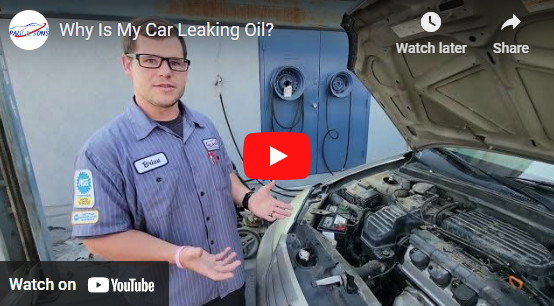
Why is my car leaking oil? An oil leak can be caused by a variety of issues, and it's important to address it promptly to avoid more serious damage. Here are some common causes: Worn or Damaged Gaskets Engine gaskets, like the valve cover gasket or oil pan gasket, can wear out or become damaged over time, leading to leaks. Oil Filter Issues If the oil filter isn’t properly installed or has become damaged, it can cause oil to leak. Sometimes, a loose filter can also be the culprit. Oil Drain Plug Problems The drain plug, which is used to change the oil, might be loose or have a damaged seal, allowing oil to escape. Cracked Oil Pan The oil pan can crack due to road debris or impact, causing a leak. Faulty Oil Pump If the oil pump is malfunctioning, it can lead to oil leaks. Engine Seals Various seals in the engine, such as the rear main seal or front cran ... read more
Posted on 7/19/2024
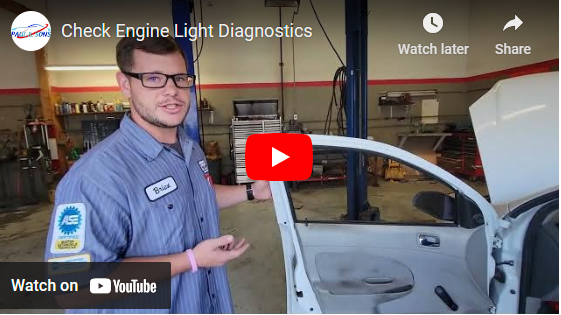
Check Engine Light Diagnostics The check engine light, also known as the malfunction indicator lamp (MIL), is part of your vehicle's on board diagnostics system. When it illuminates, it indicates that the engine management system has detected a problem with one or more components or systems in your vehicle. Brian here is demonstrating an example of CEL diagnostics and why a scan tool is simply just a tool in the process and not the immediate answer to a CEL
Posted on 7/18/2024
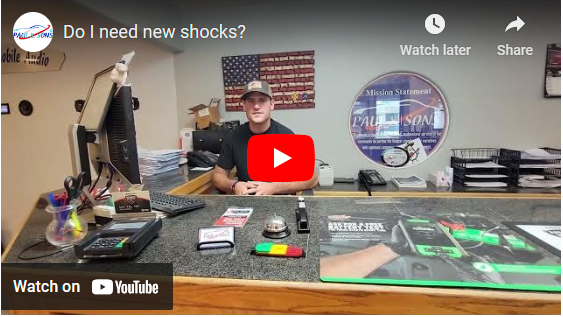
How do I know if I need new shocks? Determining if you need new shocks (or struts, which are similar components) involves checking for several signs of wear and performance degradation: Ride Quality: If you notice a significant change in how your vehicle rides—such as increased bouncing, excessive vibration, or a rougher ride over bumps—it could indicate worn shocks. Handling Issues: Worn shocks can lead to poor handling characteristics. You may experience excessive body roll during turns, nose-diving when braking, or instability at higher speeds. Uneven Tire Wear: Shocks help maintain proper tire contact with the road. If you notice uneven tire wear patterns, especially cupping (where the tread wears unevenly in patches), it could be due to worn shocks. Leaking Fluid: Visible fluid leaking from the shock absorbers or struts is a clear sign of internal damage and indicates they n ... read more